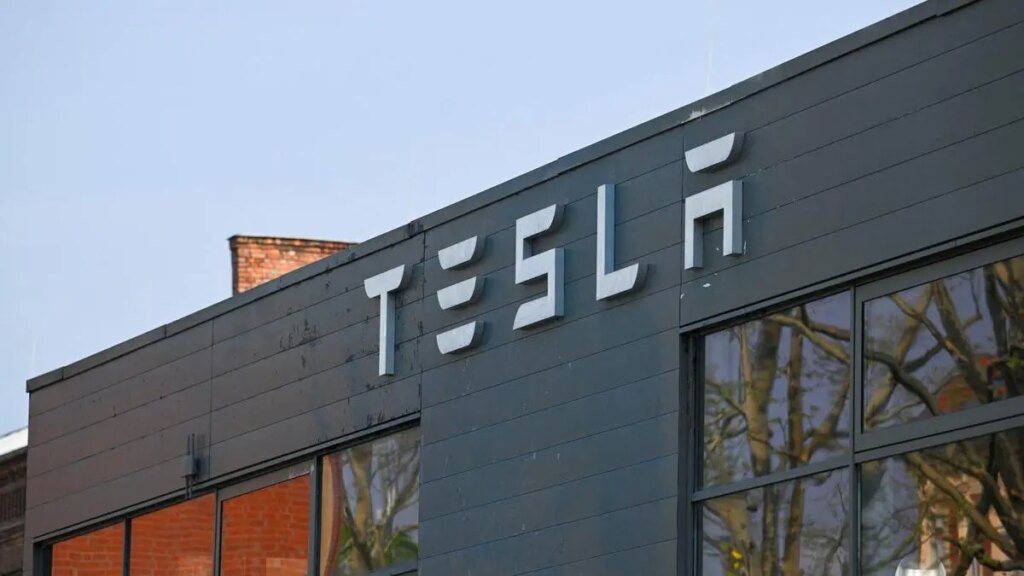
Tesla sales plunge 59% in April
Tesla Sales Plunge in France: 59% Decline Signals European Market Challenges
Table of Contents
Key Findings and Market Impact
Tesla’s position in the European electric vehicle market faces significant headwinds as the company reports a dramatic 59% sales decline in France during April 2025. This substantial market contraction in one of Europe’s most important EV markets raises serious questions about Tesla’s European strategy and operational effectiveness in the region. The company’s French registrations have plummeted to just 863 vehicles in April, representing their lowest monthly performance in France in over two years.
Critical Market Indicators
- Monthly Decline: Tesla’s French market registrations dropped 59% in April 2025 compared to the same period last year
- Registration Volume: Only 863 new vehicles registered in France – the lowest monthly total in two years
- YTD Performance: Year-to-date sales show a concerning 44% decline through the first four months of 2025
- Production Impact: Model Y production transition has significantly impacted delivery capabilities
- Market Position: Competitive positioning in Europe’s second-largest EV market under pressure
The steep decline in Tesla’s French sales comes at a crucial juncture for the company’s European operations. As competition intensifies from both established automakers and emerging EV specialists, Tesla’s ability to navigate production transitions while maintaining market share has come under scrutiny. Industry analysts are closely monitoring whether this represents a temporary setback related to Model Y production changes or signals deeper challenges in Tesla’s European market approach.
April 2025 Performance Analysis
April 2025 Performance Overview
Tesla’s April 2025 performance in the French market has raised significant concerns among industry analysts and investors. The 59% year-over-year decline has resulted in just 863 vehicle registrations for the month, marking the company’s weakest monthly performance in France in over two years. This dramatic contraction comes despite the overall growth in France’s electric vehicle segment, suggesting Tesla is losing ground to competitors in this strategic European market.
The April performance is particularly concerning as it occurred during what is traditionally a strong selling period in the European automotive market. The registration numbers show that Tesla’s market share in France’s electric vehicle segment has contracted significantly, with domestic and other European manufacturers appearing to capitalize on Tesla’s delivery challenges.
| Performance Metric | April 2025 Result | Year-over-Year Change | Market Impact |
|---|---|---|---|
| Monthly Registrations | 863 vehicles | -59% | Significant market share contraction |
| YTD Registrations | 3,452 vehicles (est.) | -44% | Sustained negative trend |
| Market Positioning | Dropped from top 3 EV sellers | Down from #2 position | Competitive position weakened |
| Model Y Sales | Production transition period | Significant delivery delays | Core product availability limited |
Comparative analysis reveals that while Tesla’s registrations declined sharply, several European automotive manufacturers reported growth in their electric vehicle segments in the French market during the same period. This divergence highlights Tesla’s specific challenges rather than a broader market contraction.
Year-to-Date Performance Metrics
The concerning trend extends beyond April’s performance, with Tesla’s French registrations showing a substantial 44% decrease through the first four months of 2025. This decline in Europe’s second-largest electric vehicle market signals potential systemic challenges in Tesla’s broader European operations and market strategy rather than a single-month anomaly.
Year-to-date analysis reveals that Tesla’s performance deterioration began in the first quarter of 2025, with each subsequent month showing further contraction. The April figures represent an acceleration of this negative trend, suggesting that production challenges are having a cumulative impact on the company’s market position.
2025 Performance Timeline and Key Events
- January 2025: Initial signs of sales pressure with 15% year-over-year decline
- February 2025: Announcement of planned Model Y production line modifications
- March 2025: Initiation of Model Y production transitions at multiple facilities
- March 2025: First deliveries of redesigned Model Y begin in limited numbers
- April 2025: Registration numbers hit two-year low with 59% decline
- Q1 2025 Overall: Poorest quarterly performance in the French market since 2022
- Production Impact Period: Several weeks of reduced output during model changeover
The year-to-date performance trajectory raises questions about Tesla’s ability to recover market position in the second half of 2025. The company will need to successfully complete its Model Y production transition and accelerate deliveries to reverse the current trend and regain competitive standing in the French market.
Model Y Production Challenges
The significant sales decline coincides directly with Tesla’s transition to producing the redesigned Model Y sport utility vehicle, which represents the company’s bestselling model in Europe. Tesla began delivering the updated Model Y to European customers in early March 2025, following extensive production line modifications at multiple assembly facilities, including its strategic German Gigafactory near Berlin.
The production transition process has proven more disruptive than anticipated, with several key challenges impacting Tesla’s delivery capabilities:
Key Production Impact Factors
- Production Line Modifications: Extensive retooling at the German Gigafactory required longer-than-expected production pauses
- Supply Chain Disruptions: New component requirements for the redesigned Model Y created temporary supply bottlenecks
- Quality Validation Processes: Enhanced quality control measures for the new model extended the production ramp-up timeline
- Workforce Training Requirements: New manufacturing processes necessitated additional worker training, temporarily reducing production efficiency
- Logistics Challenges: Distribution system adjustments for the new model affected delivery schedules across European markets
Industry experts note that production transitions of this magnitude typically result in temporary delivery disruptions. However, the extent of Tesla’s sales decline in France suggests that the company may have underestimated the operational impact of the Model Y redesign implementation. The prolonged nature of the production challenges indicates that full recovery may take several additional months.
European Competitive Landscape
Tesla’s sales challenges in France occur against a backdrop of intensifying competition in the European electric vehicle market. While Tesla works through its production transition, European automotive manufacturers have accelerated their EV offerings, presenting consumers with an expanding range of compelling alternatives.
The competitive landscape in Europe’s EV market has evolved significantly in 2025, with several key developments impacting Tesla’s market position:
- Enhanced European Offerings: Traditional European manufacturers have expanded their electric vehicle lineups with models specifically designed for European consumer preferences
- Pricing Pressure: Competitive pricing strategies from both established manufacturers and new market entrants have created margin pressure in the premium EV segment
- Policy Incentives: Some European markets have implemented incentive structures that favor locally-manufactured electric vehicles
- Range and Performance Parity: Newer competitor models have achieved range and performance specifications that narrow Tesla’s historical advantages
- Charging Infrastructure: European manufacturers have invested in expanding charging networks, reducing Tesla’s Supercharger network advantage
Market data indicates that during Tesla’s April sales contraction in France, several competitors gained market share, demonstrating the direct competitive impact of Tesla’s delivery challenges. This market share redistribution raises questions about Tesla’s ability to recapture lost ground once production normalizes.
Strategic Implications for Tesla
The dramatic decline in French market performance raises critical questions about Tesla’s European market strategy and its ability to maintain market leadership in the region. The timing of this sales downturn, coinciding with the Model Y production transition, suggests that operational challenges may be significantly impacting the company’s ability to meet market demand and maintain competitive positioning.
Tesla faces several strategic imperatives to address its current market challenges in Europe:
Strategic Response Requirements
- Accelerate Production Recovery: Prioritize rapid completion of Model Y production line transitions to restore full delivery capabilities
- Market Strategy Reassessment: Evaluate European market approach in response to evolving competitive dynamics and consumer preferences
- Pricing Strategy Review: Assess competitive pricing position in key European markets, particularly for the Model Y
- Distribution Network Enhancement: Optimize European delivery and service infrastructure to improve responsiveness to market demand
- Product Differentiation Reinforcement: Clearly communicate Model Y improvements to distinguish from increasing competitor offerings
- Supply Chain Resilience: Strengthen European supply chain to reduce vulnerability to production transitions
- Localization Strategy: Enhance product and service offerings to better address specific European market preferences
Tesla’s ability to effectively implement these strategic responses will be crucial for reversing the current negative sales trend in France and strengthening its broader European market position. The company’s adaptive capacity and operational agility will be tested as it navigates these market challenges.
European Market Context and Future Outlook
Tesla’s European Operations
Tesla’s European operations, anchored by its German Gigafactory near Berlin, are fundamental to the company’s global strategy. The significant sales decline in France, one of Europe’s premier electric vehicle markets, underscores the challenges of maintaining market dominance while managing production transitions and adapting to dynamic market conditions. Europe represents Tesla’s second-largest market globally, making performance recovery in the region essential for the company’s overall growth trajectory.
Looking forward, several key factors will influence Tesla’s ability to recover and strengthen its position in the French and broader European markets:
Future Outlook Determinants
- Production Stabilization Timeline: The speed at which Tesla can fully normalize Model Y production will directly impact sales recovery potential
- Market Reception of Redesigned Model Y: Consumer response to the updated model will influence Tesla’s competitive positioning
- Competitive Response Dynamics: How competitors leverage Tesla’s temporary vulnerability may have lasting market share implications
- Evolving Regulatory Environment: Changes in European EV incentives and regulations will shape market conditions
- Broader Economic Factors: Interest rates, inflation, and consumer confidence will impact the premium EV segment
- Tesla’s Innovation Pipeline: Upcoming product announcements may influence consumer purchase timing decisions
Industry analysts project that Tesla will likely experience a gradual recovery in French market performance during the second half of 2025 as Model Y production stabilizes. However, the company may face challenges in fully recapturing lost market share, particularly if competitors have successfully established stronger positions during Tesla’s period of reduced delivery capacity.
Investor Perspective and Financial Impact
From an investor perspective, Tesla’s French market performance raises questions about the company’s European execution and potential financial implications. While France represents only one market within Tesla’s global operations, the significant sales decline may signal broader challenges in the company’s European strategy and operational management.
Several financial considerations emerge from Tesla’s current market situation:
- Revenue Impact: The 44% year-to-date decline in French sales will have a direct impact on European revenue contribution, though the magnitude depends on Tesla’s performance in other European markets
- Margin Implications: Production inefficiencies during the Model Y transition may temporarily impact gross margins on European sales
- Inventory Management: Production-delivery misalignment could create inventory challenges requiring careful management
- Capital Efficiency: Reduced delivery volume impacts return on invested capital for European operations
- Market Share Recovery Costs: Regaining lost market share may require increased marketing or pricing adjustments with margin implications
The investment community will be closely monitoring Tesla’s communication regarding its European operations and specific recovery plans for markets like France where significant sales declines have occurred. Transparency about production normalization timelines and market strategy adjustments will be essential for maintaining investor confidence.
Conclusion and Outlook
Tesla’s 59% sales decline in the French market represents a significant challenge for the company’s European operations. While directly linked to the Model Y production transition, the magnitude of the decline highlights potential vulnerabilities in Tesla’s market approach and operational execution. The company’s ability to successfully navigate these challenges will be crucial for maintaining its leadership position in the European electric vehicle sector.
As Tesla works to stabilize production and accelerate deliveries, its response to the current market situation will reveal much about the company’s operational agility and strategic adaptability. The coming months will be critical in determining whether this sales decline represents a temporary setback or signals a need for more fundamental strategic adjustments in Tesla’s European operations. For the electric vehicle market as a whole, Tesla’s challenges demonstrate the increasing competitiveness of the sector and the operational complexities involved in maintaining market leadership during product transitions.






